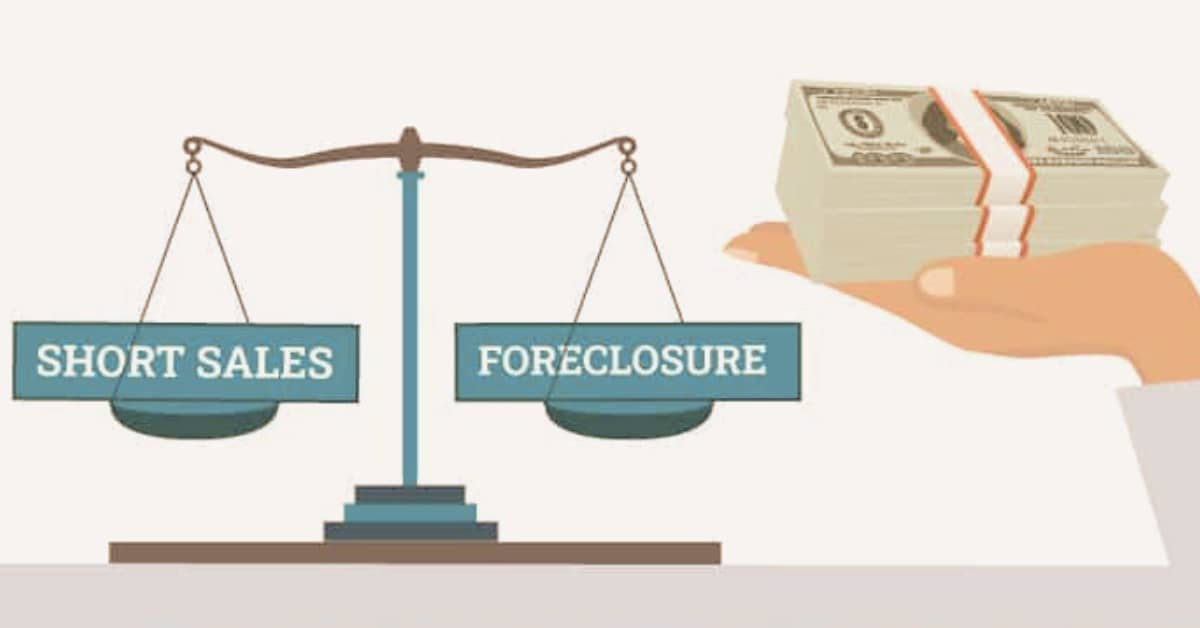In the realm of Orlando real estate, understanding the intricacies of different property transactions is paramount for both buyers and sellers. For those navigating the dynamic Orlando market, two terms often discussed are “short sale” and “foreclosure.” While these terms might seem synonymous, they represent distinct paths for homeowners facing financial difficulties and investors seeking opportunities. In this comprehensive blog post, we’ll delve into the difference between short sales and foreclosures, viewed through the lens of an Orlando realtor. By grasping these distinctions, you can make more informed decisions whether you’re buying, selling, or investing in Orlando’s vibrant real estate landscape.
Defining Short Sales and Foreclosures
Short Sale: A short sale occurs when a homeowner sells their property for an amount less than what they owe on the mortgage. This happens with the lender’s approval and often stems from the homeowner’s financial distress or a declining property value. The proceeds from the sale fall “short” of fully repaying the mortgage debt, hence the term “short sale.”
Foreclosure: Foreclosure is a legal process initiated by a lender when a homeowner defaults on their mortgage payments. It culminates in the lender taking ownership of the property through a court-ordered auction or trustee sale. Foreclosure is a last resort for lenders to recover their investments when borrowers can’t meet their financial obligations.
Orlando Realtor Perspective: Short Sale vs. Foreclosure
Impact on Credit Score
- Short Sale: While a short sale can have a negative impact on a homeowner’s credit score, it is generally less severe than a foreclosure. Credit scores can drop by varying degrees, depending on the specific circumstances and the homeowner’s prior credit history.
- Foreclosure: Foreclosure can have a significantly more damaging effect on credit scores. This can result in credit score drops of 200 to 300 points or more, and the impact can persist for several years.
Time Frame
- Short Sale: The short sale process can be more time-consuming due to negotiations between the seller, buyer, and lender. However, once a short sale is approved, the actual transaction can proceed relatively quickly.
- Foreclosure: Foreclosure proceedings can take a substantial amount of time, often stretching over several months or even years. This timeline can vary based on state laws and the complexities of the case.
Future Homeownership
- Short Sale: After a short sale, homeowners may be eligible to purchase another home sooner than if they had gone through a foreclosure. The waiting period is generally shorter and can be as little as two to three years, depending on the situation.
- Foreclosure: Homeowners who undergo foreclosure may face a longer waiting period before being eligible for another mortgage. This period can range from three to seven years, or even more, depending on various factors.
Financial Consequences
- Short Sale: While short sales can lead to the forgiveness of remaining mortgage debt, homeowners might still face tax implications on the forgiven amount. Consulting a tax professional is advisable in such cases.
- Foreclosure: Foreclosures can lead to a deficiency judgment, where the lender seeks repayment of the remaining mortgage balance after the sale. This judgment can have significant financial repercussions for the homeowner.
Property Condition
- Short Sale: In many cases, homeowners who opt for a short sale may still be living in the property. As a result, the property is likely to be in better condition compared to abandoned foreclosure properties.
- Foreclosure: Foreclosed properties can often fall into disrepair, as the previous homeowners might have vacated the property before the foreclosure process was complete. This can require more extensive renovations for potential buyers.
Investment Opportunities
- Short Sale: Short sale properties can present attractive investment opportunities for real estate investors in Orlando. These properties are typically sold at a discount, offering the potential for profit upon resale or as rental properties.
- Foreclosure: Foreclosed properties can also be appealing to investors due to their discounted prices. However, investors must thoroughly assess the property’s condition and potential legal complications before making a purchase.
Navigating the Orlando Market
As an Orlando realtor, comprehending the nuances between short sales and foreclosures is essential in guiding your clients effectively. Empower them with information about the potential impacts on their credit, future homeownership goals, and financial outcomes. Additionally, emphasize the value of due diligence in assessing property conditions, which can significantly impact investment decisions.
When dealing with buyers or sellers facing these situations, your expertise in negotiating with lenders, understanding local laws, and facilitating smooth transactions will be invaluable. Collaborate with legal professionals, mortgage brokers, and industry experts to ensure your clients receive comprehensive guidance.
Final Thoughts

The distinction between short sales and foreclosures is more than just semantic—it has significant implications for homeowners, buyers, and investors in the Orlando real estate market. As a realtor, your role in clarifying these differences and helping clients make informed decisions is crucial. By offering tailored guidance, you can navigate your clients through the complexities of these transactions, ultimately helping them achieve their goals within Orlando’s dynamic real estate landscape.










